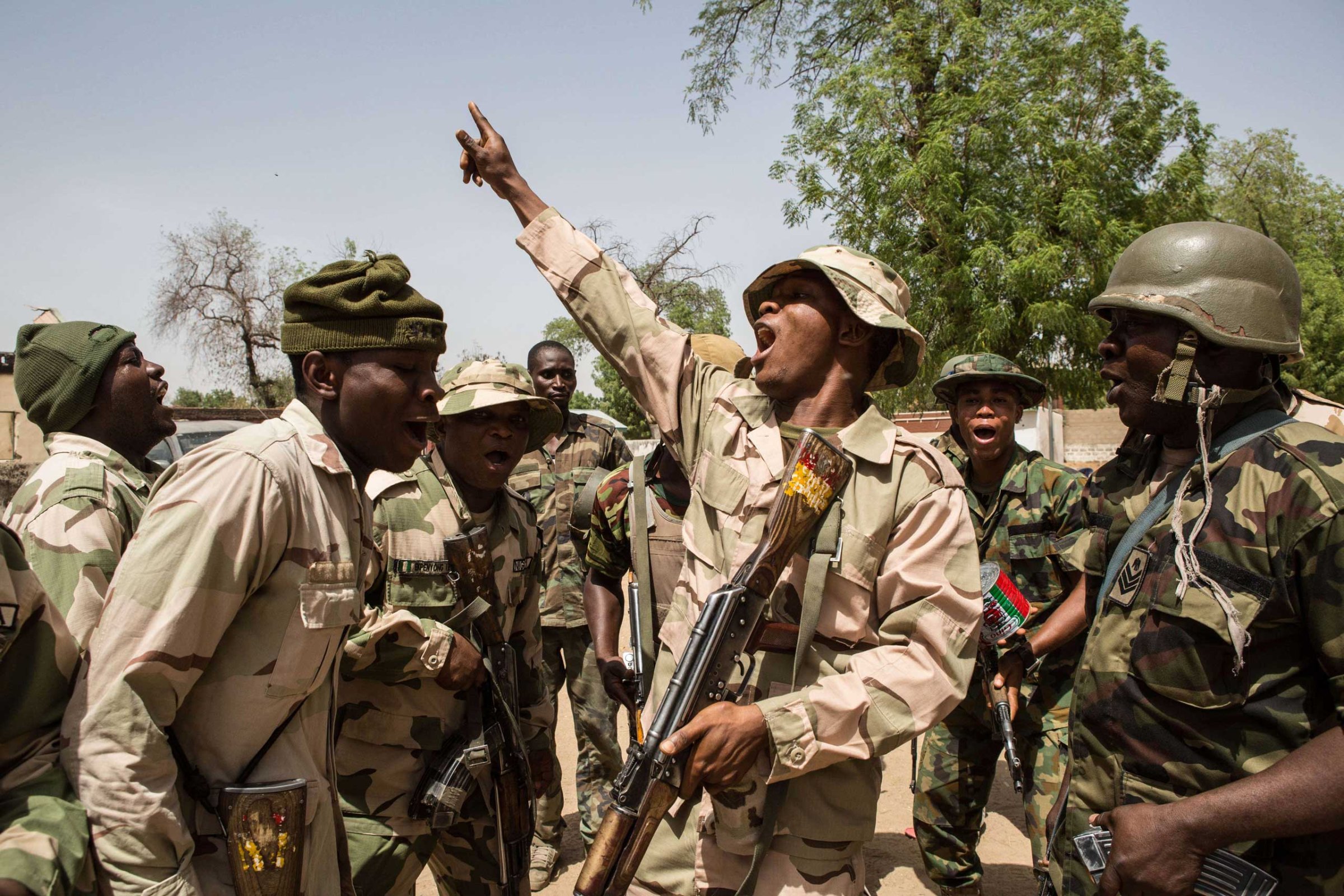
Even before Nichole Sobecki’s helicopter landed in Bama, Nigeria, on March 25, the staggering devastation was visible.
The militant group Boko Haram, which has sworn allegiance to the Islamic State of Iraq and Greater Syria (ISIS), held the key northeastern town for six months before military forces wrestled control of it about a week earlier. The American photographer, based in Nairobi but recently working in Abuja, was embedded with Nigeria’s army, which took back Bama as part of a multi-pronged effort that also includes forces from neighboring Niger, Chad and Cameroon.
“Corrugated iron roofs lie among charred debris, the walls of houses blackened with soot or in ruins,” she tells TIME. “Dusty roads inside the town offer further evidence of atrocities. The remains of a man lie in a sewer, in the fetal position surrounded by trash and human waste. A nearby bridge was used as an execution site,” she adds. “Soldiers cover their faces when entering Bama’s former prison to protect themselves from the smell of those killed as a final act of vengeance before Boko Haram fled the town.”
Sobecki says Bama is now a shadow of a town.
“It’s empty of all but a fraction of its people; its buildings collapsed; the smell of decay everywhere,” she says. “Most people had fled in the days before I got there, often to Maiduguri, where an estimated 7,500 people are camped out in a makeshift settlement of little more than a few dilapidated buildings in a clearing of Neem trees on the outskirts of the city.”
Those who remain—mainly women and children—sit “huddled together on the roadside,” she continues, “seeking shelter from the harsh sun in what little shade they can find as camouflaged troops roll by in armored personnel carriers.”
Nigerians will go to the polls this weekend, but despite a big push from the country’s military and its allies against Boko Haram, much needs to happen for the country to stabilize.
“This crisis has been years in the making,” Sobecki says. “It’s going to take a much more sustained effort to restore any meaningful sense of security here. When I visited northern Nigeria in 2010, I saw a crumbling education system, poor infrastructure and poverty and unemployment out of line with the rest of the country. Today, it doesn’t look much different.”
Read next: Why Nigeria’s Elections Could Trigger Renewed Violence

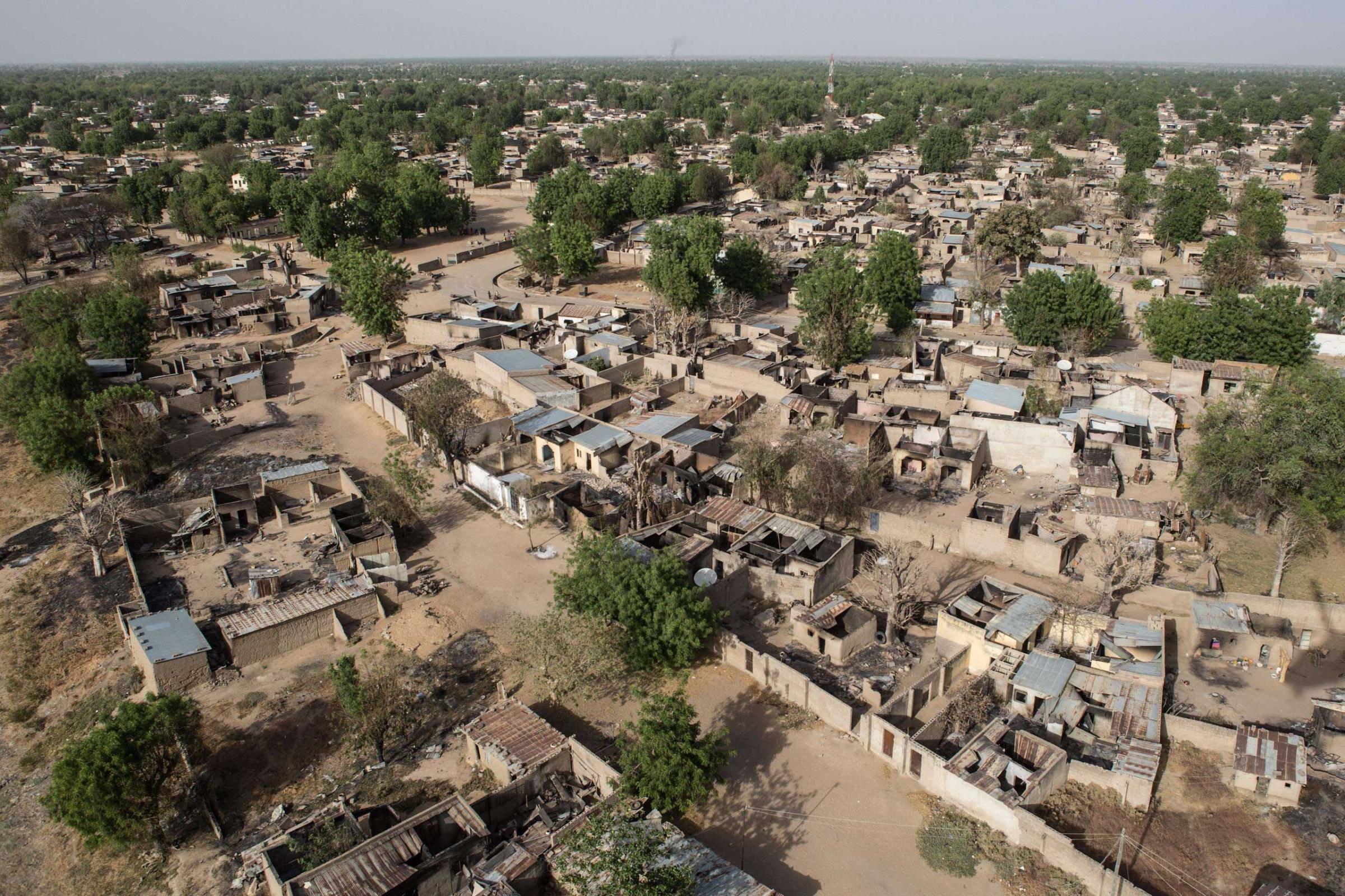
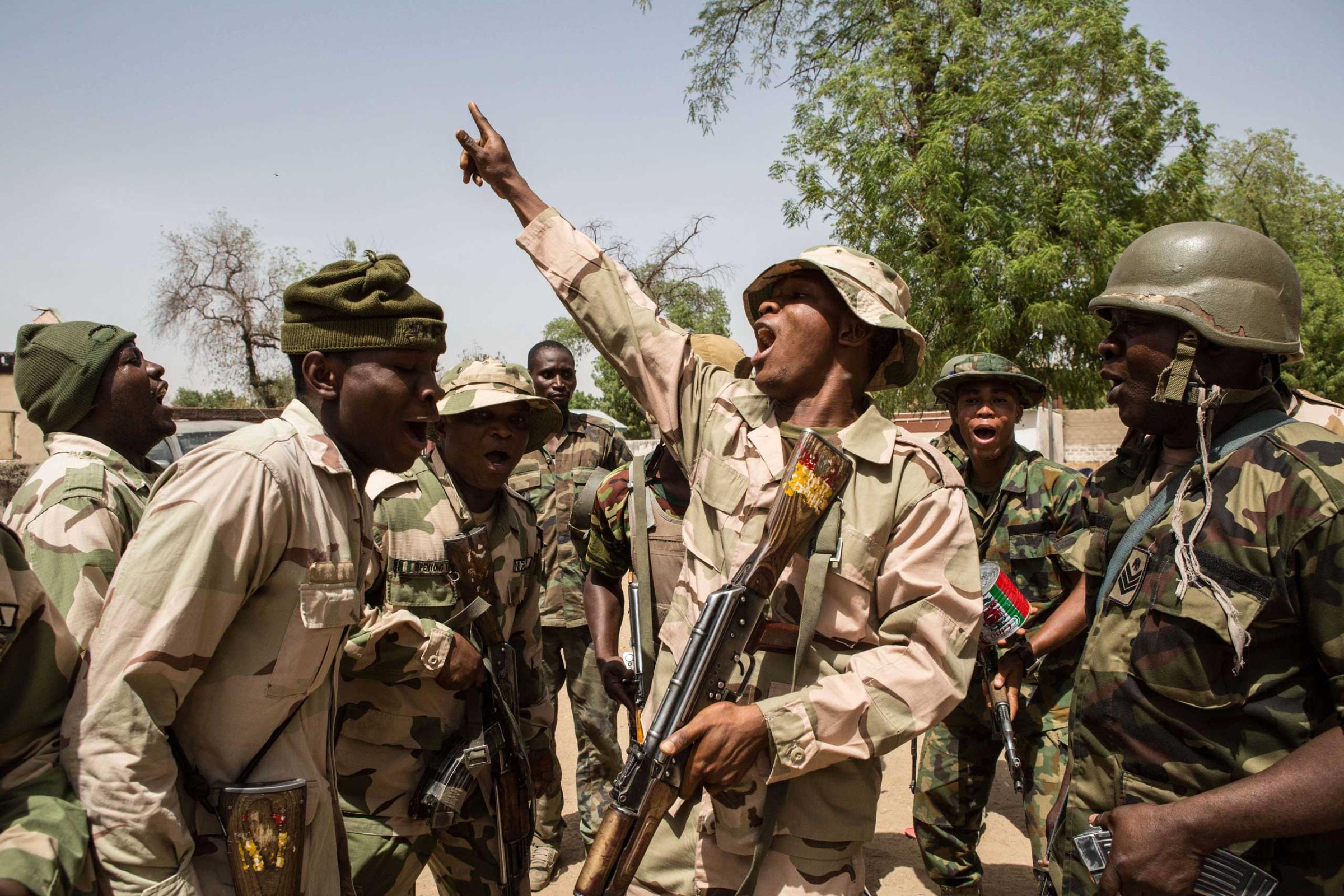
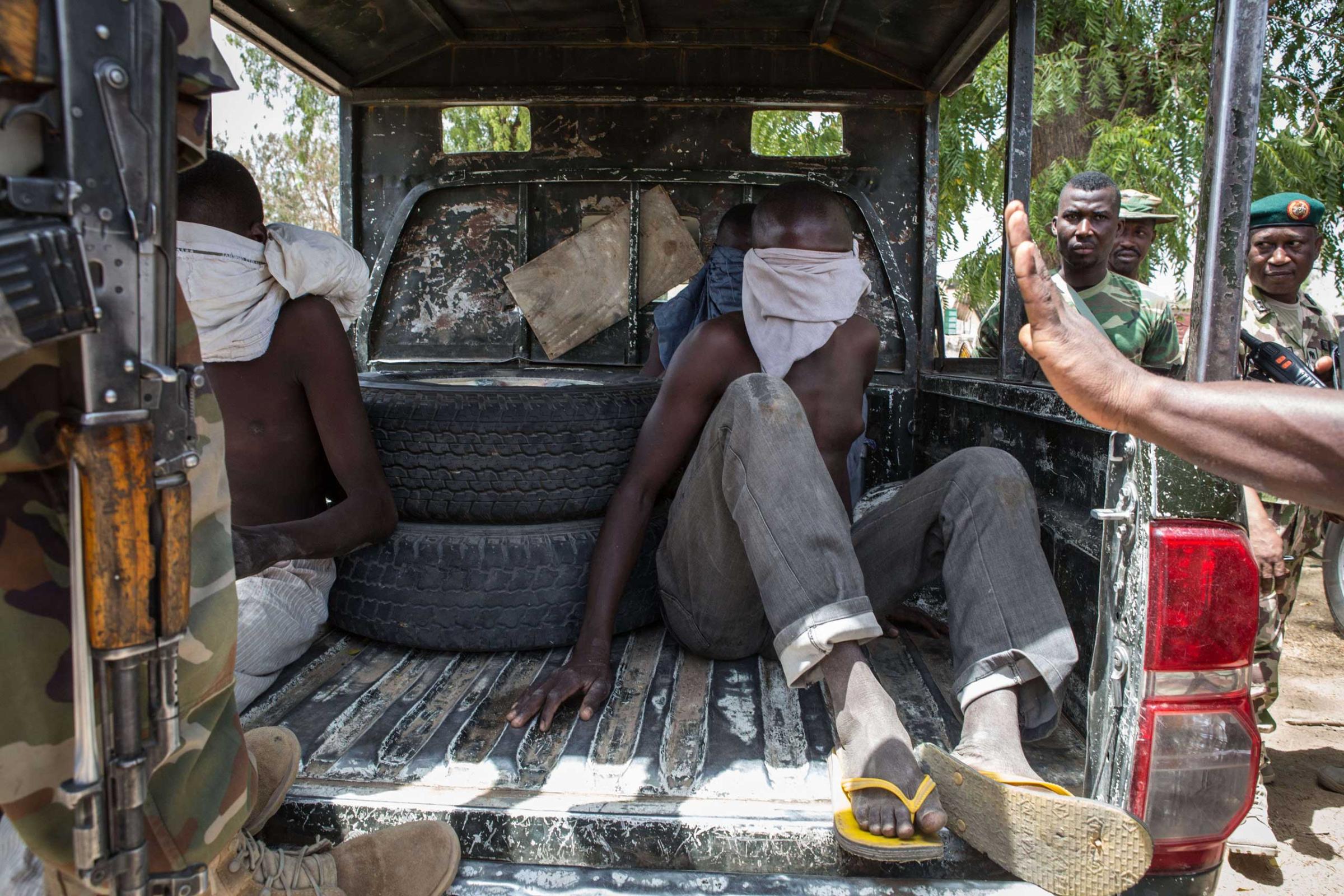
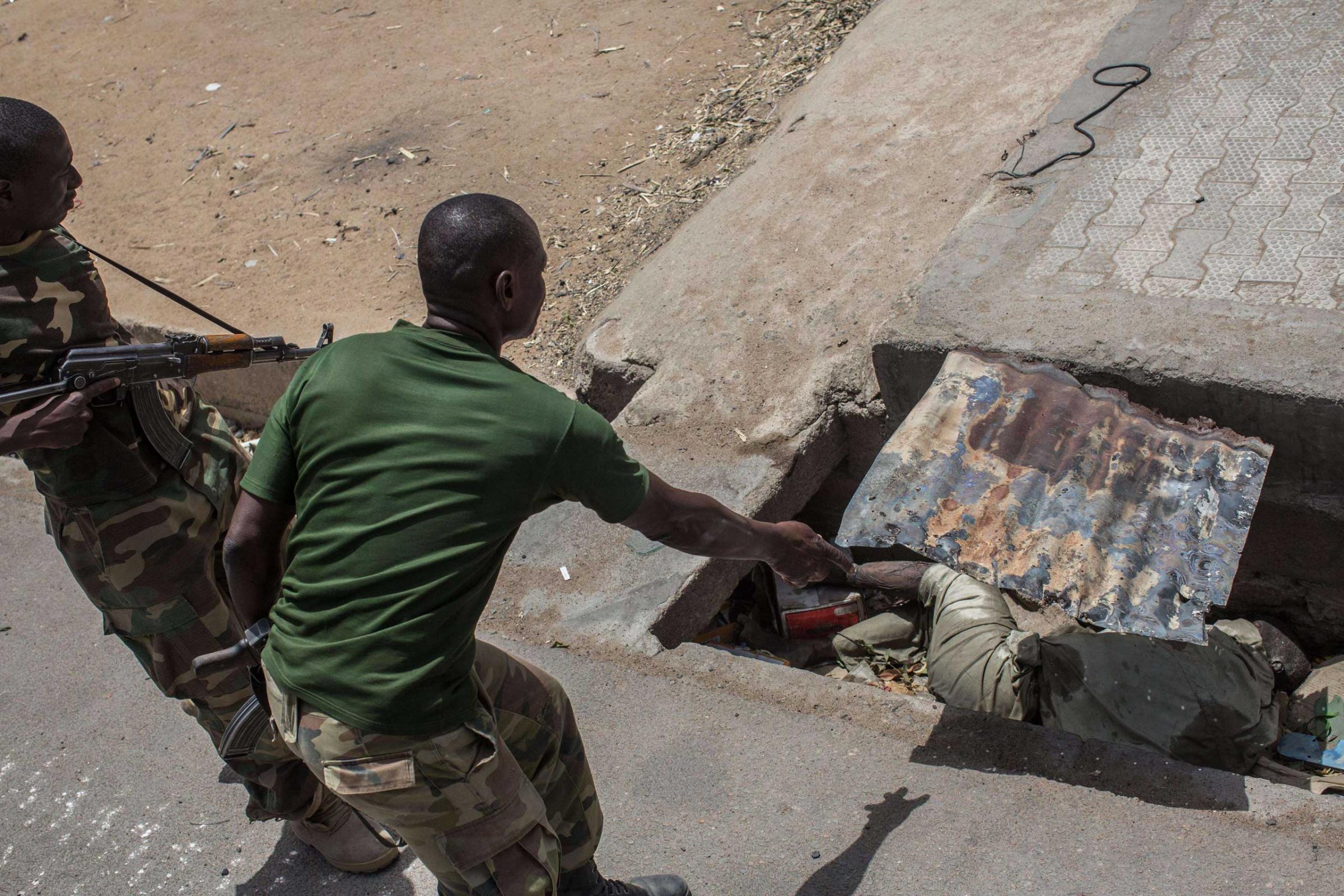
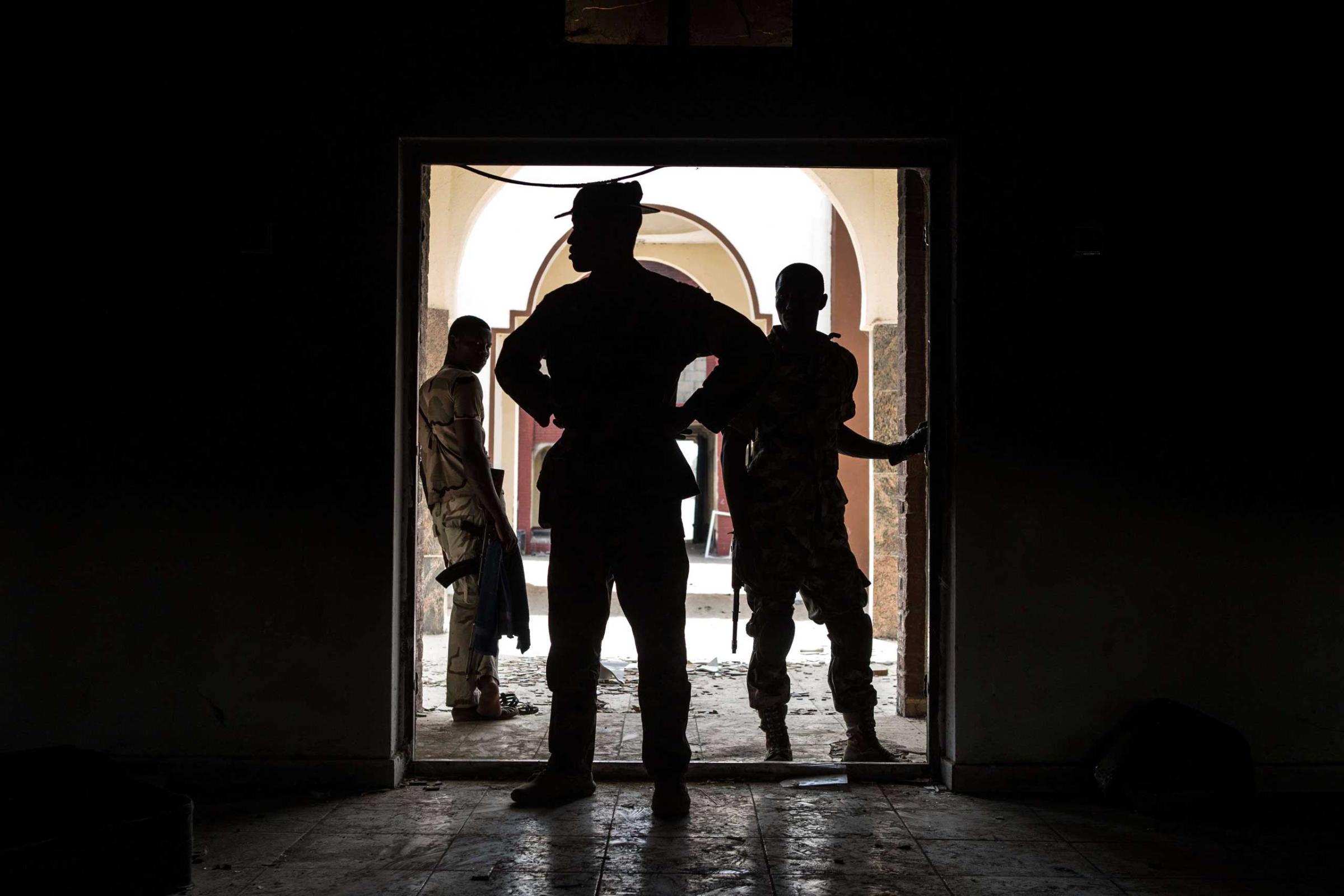
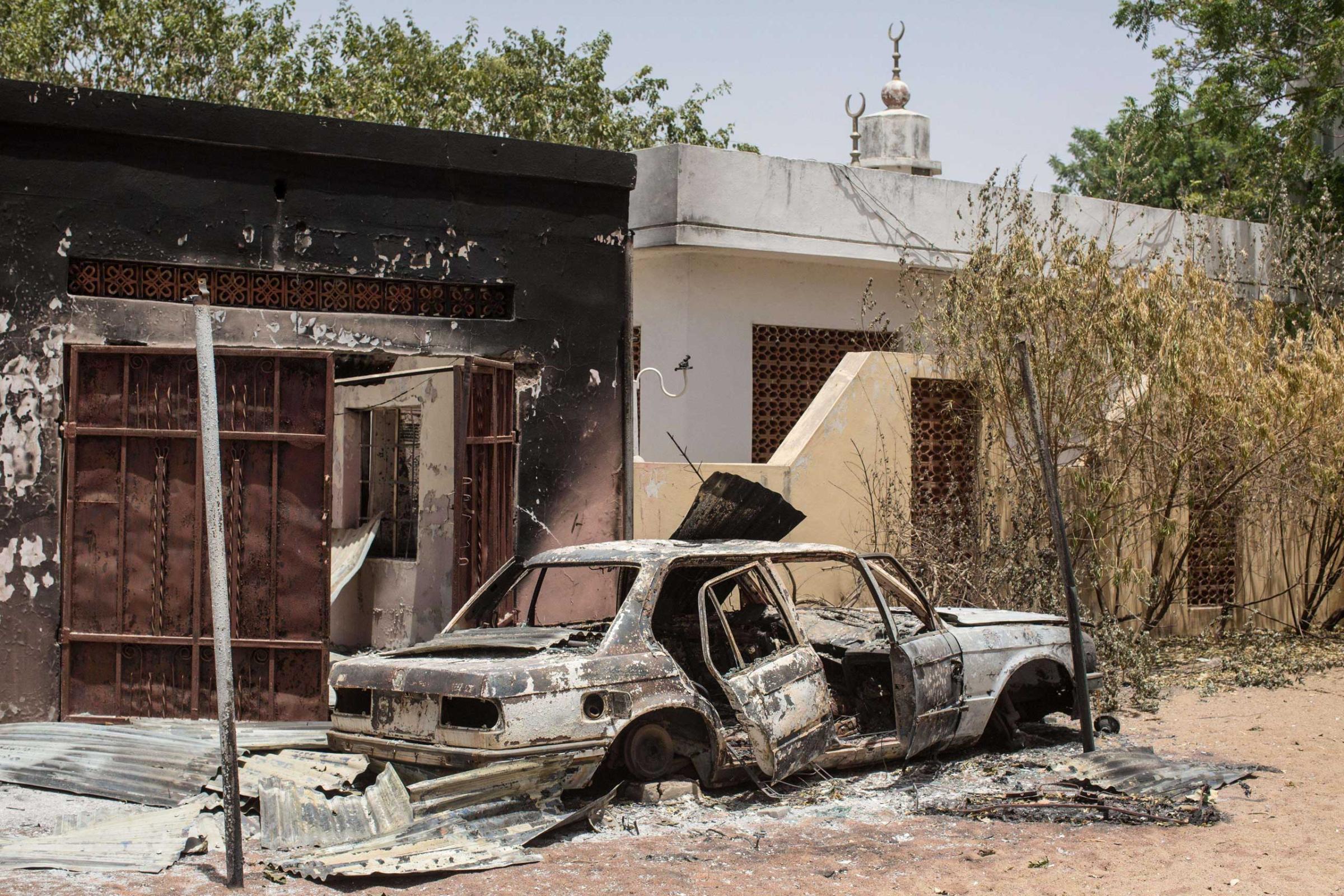
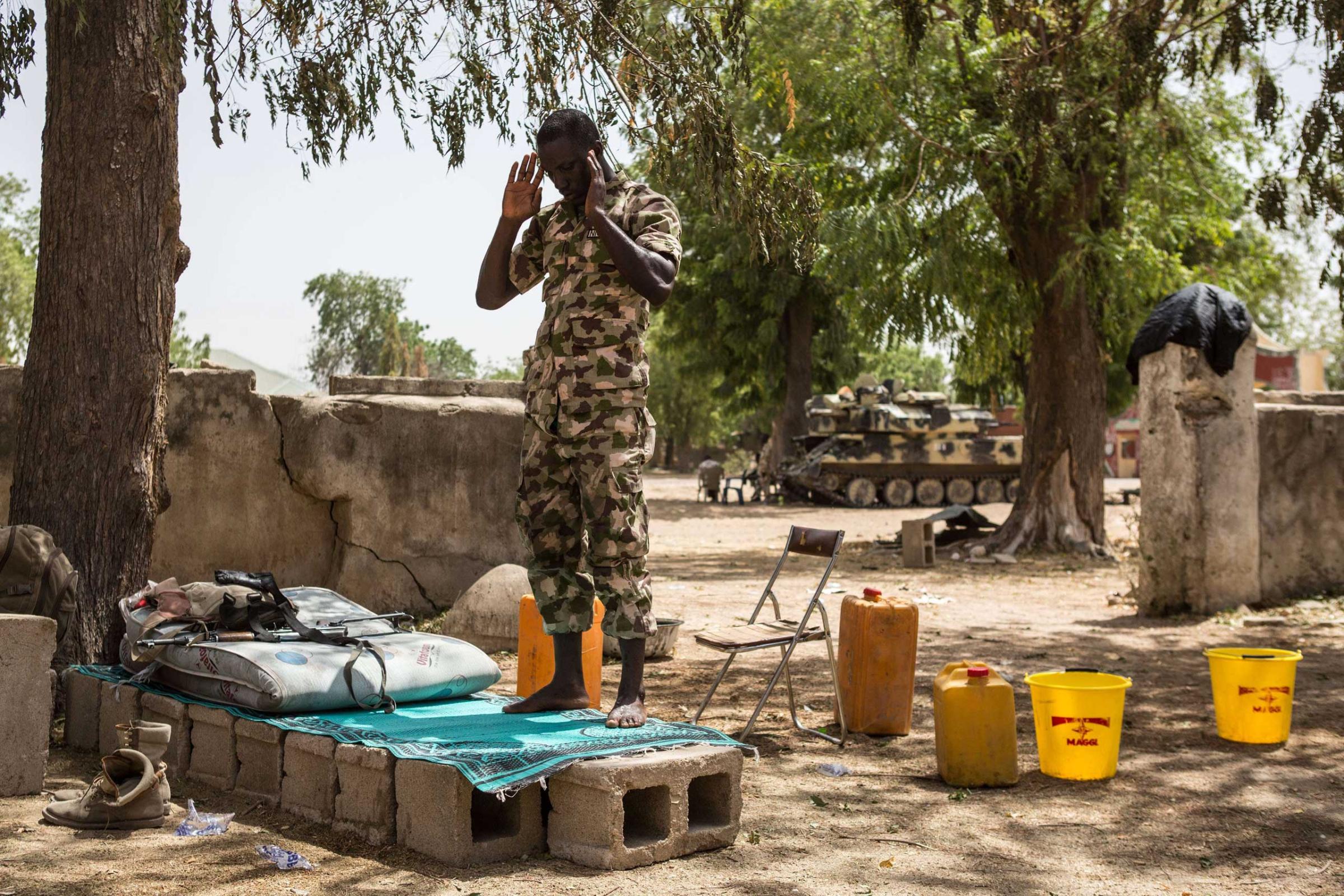
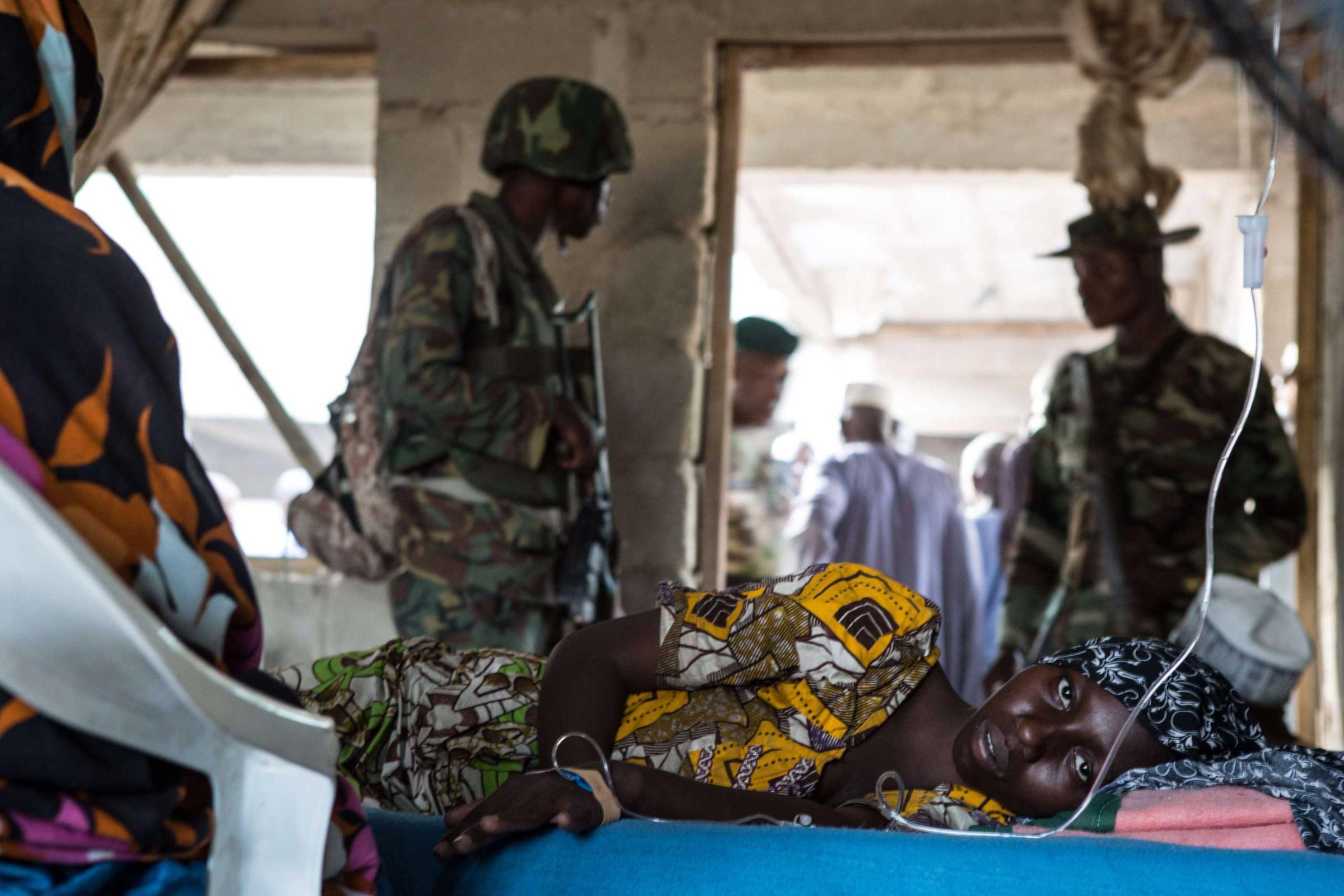
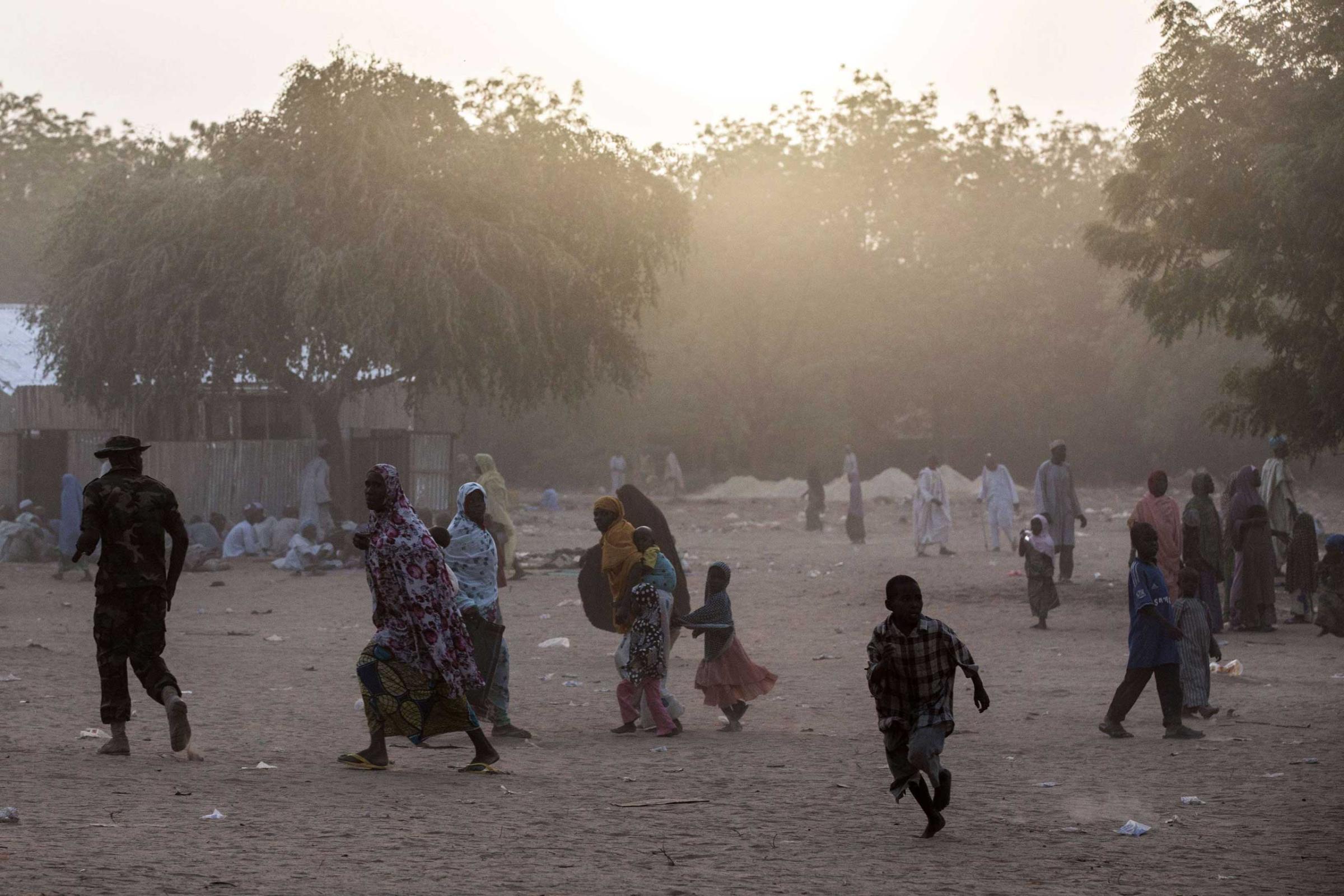
More Must-Reads from TIME
- Donald Trump Is TIME's 2024 Person of the Year
- Why We Chose Trump as Person of the Year
- Is Intermittent Fasting Good or Bad for You?
- The 100 Must-Read Books of 2024
- The 20 Best Christmas TV Episodes
- Column: If Optimism Feels Ridiculous Now, Try Hope
- The Future of Climate Action Is Trade Policy
- Merle Bombardieri Is Helping People Make the Baby Decision
Contact us at letters@time.com